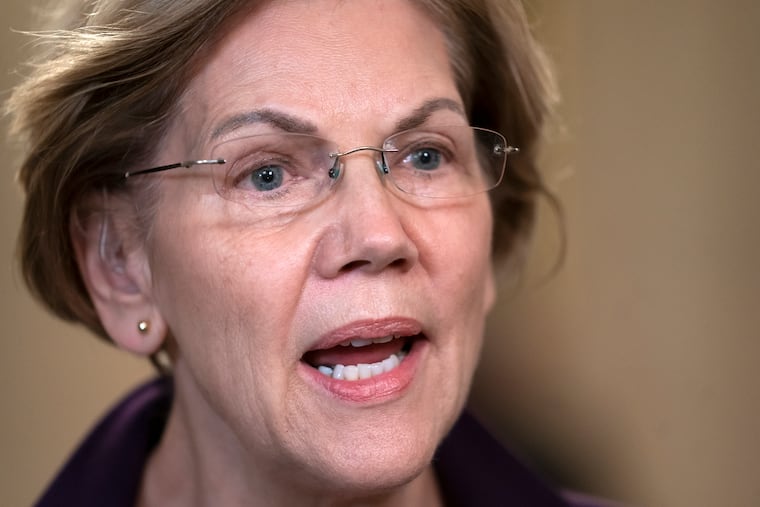Elizabeth Warren offers infectious-disease plan amid China outbreak
Democratic presidential candidate Elizabeth Warren has announced a plan to prevent, contain and treat infectious diseases as a new viral illness spreads in China

DES MOINES, Iowa — Democratic presidential candidate Elizabeth Warren has announced a plan to prevent, contain and treat infectious diseases as a new viral illness spreads in China.
The Massachusetts senator on Tuesday unveiled a plan that includes fully funding the federal Centers for Disease Control and Prevention's pandemic prevention and response programs. The agency has faced stiff budget cuts under President Donald Trump, including to emergency funds and global health programs that were established following West Africa's Ebola epidemic in 2014.
“Like so much else, Trump’s approach to keeping us safe from disease outbreaks is a mess,” Warren wrote in an online post announcing the plan. “But when he’s gone, we can fix it.”
Warren's proposal comes as the coronavirus has killed more than 100 people in China and the city at the center of the crisis, Wuhan, remains on lockdown. The U.S. has confirmed cases in Washington state, Illinois, Southern California and Arizona.
The timing of Warren's announcement was no accident — nor is the fact that she's the candidate drawing up the proposal. During more than a year of campaigning, Warren has embraced the reputation of having “a plan” for nearly everything. She remains bunched near the top of the polls with former Vice President Joe Biden, Vermont Sen. Bernie Sanders and former South Bend, Indiana, Mayor Pete Buttigeig, with the Iowa caucuses, which lead off primary voting, looming on Feb. 3.
Warren blamed the Trump administration for proposing “billions in cuts to the agencies responsible for fighting and preventing pandemics, a devastating blow that would put lives at risk." Not all of those reductions have been approved by Congress, though.
She also promised to push the CDC to develop vaccines against infectious diseases, including a universal immunization against the flu. But it is the National Institutes of Health that has already made a priority of developing a better flu vaccine.
Warren said she can mitigate the spread of disease by fighting climate change and moving the U.S. to a universal, government-funded health system under the “Medicare for All” program. She also wants to increase NIH funding by $100 billion.
Although such a high price tag may make it difficult to survive the appropriations process, Warren plans to help with the funding by creating a “swear jar." That would be a pot of money requiring private companies to pay some of their profits from publicly funded research back to the NIH.
Warren further promises to work with Congress to replenish funding for the Department of Health and Human Services' Public Health Emergency Fund to better respond to outbreaks and to create a Global Health Security Corps that will “ensure that we can get the right expertise to the center of an outbreak before it becomes an epidemic.”
“Diseases like coronavirus remind us why we need robust international institutions, strong investments in public health, and a government that is prepared to jump into action at a moment’s notice,” Warren wrote. “When we prepare and effectively collaborate to address common threats that don’t stop at borders, the international community can stop these diseases in their tracks.”